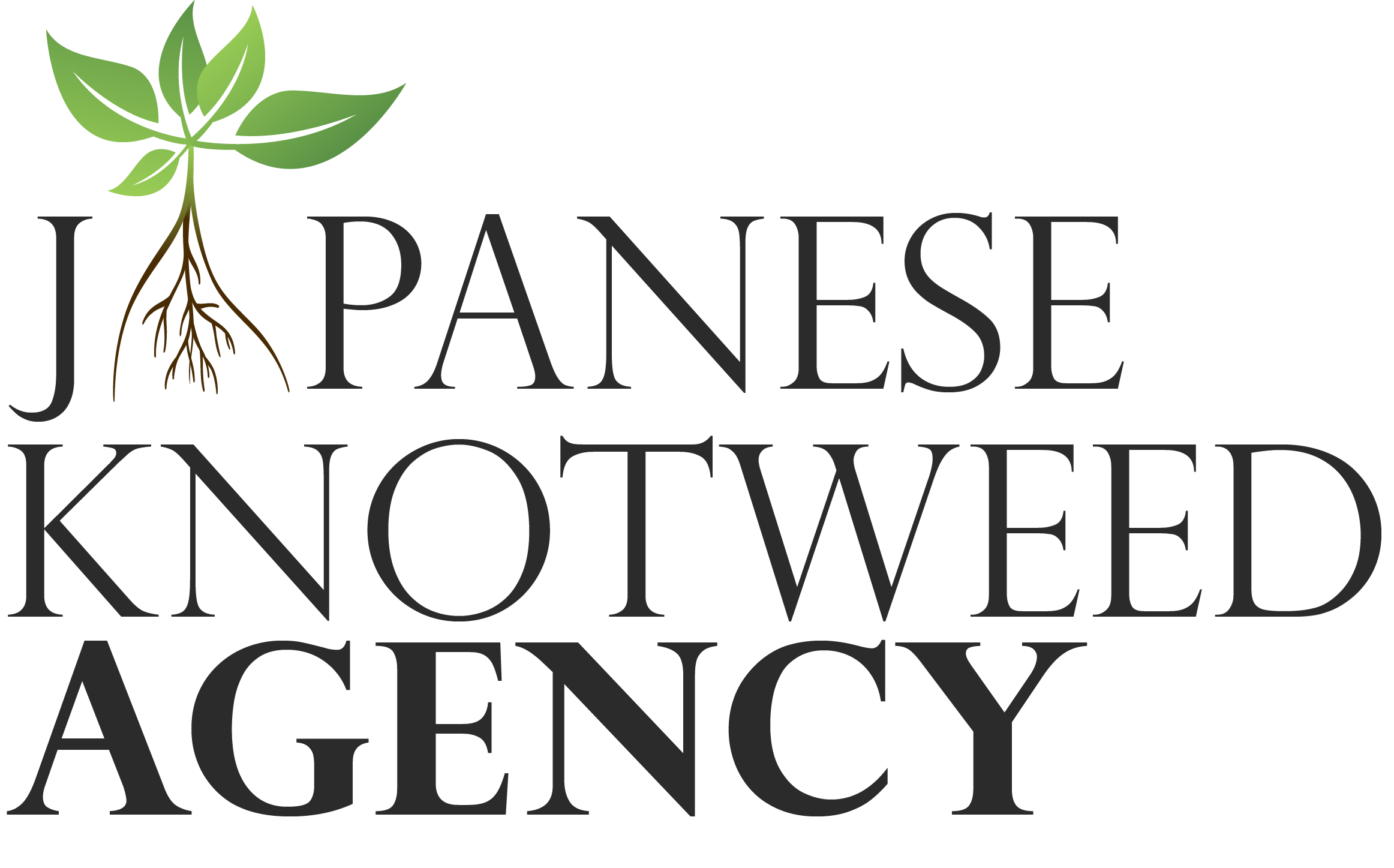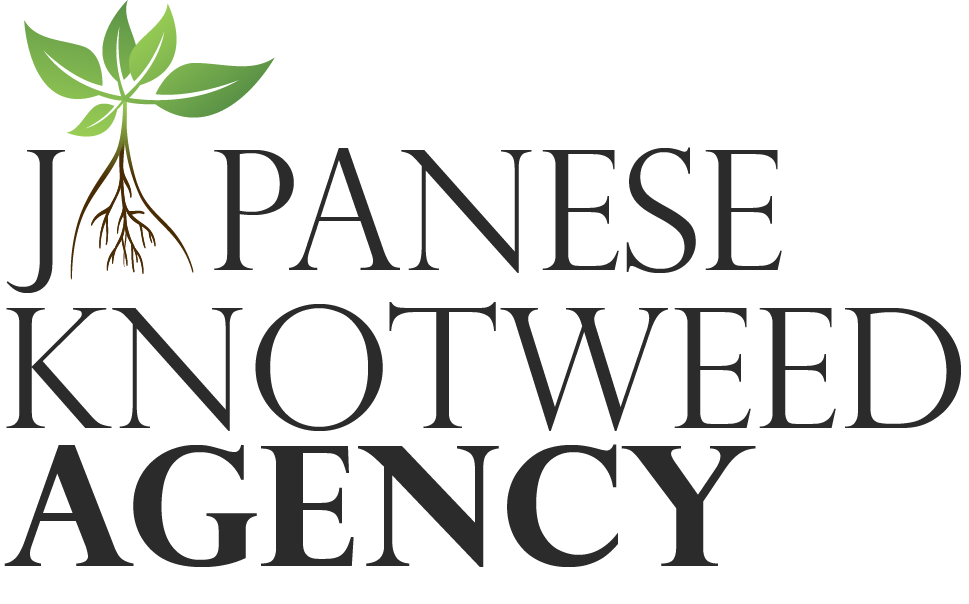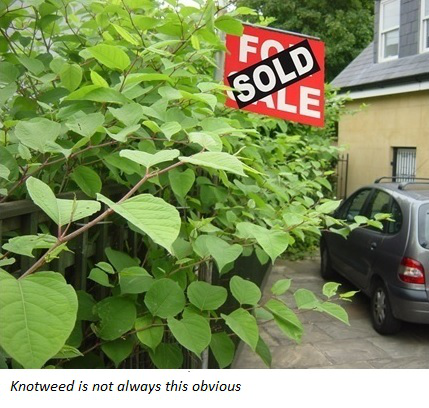Since being introduced to Britain in the early 19th century, Japanese Knotweed has spread far and wide across the country, with very few corners of the land remaining unaffected. It has been labelled as an invasive plant by the government, and due to its incredible hardy qualities, has become a bane for homeowners who are looking to sell their properties. Japanese Knotweed remains in the Top 100 most invasive plant species in the world!
Japanese Knotweed can grow up to 10cm a day during the summer, can regrow from a fragment the size of a thumbnail and spreads via an underground network of rhizomes which can remain dormant beneath the ground for years at a time. This invasive plant used to be kept at arms’ length by mortgage lenders, with some flat-out refusing to lend on properties affected, however in recent years this stance has softened somewhat.
Selling a house with Japanese Knotweed is by no means easy, but can be done as long as the correct course is taken and the seller remains proactive and honest with all parties involved.
Where is Japanese Knotweed found?
Japanese Knotweed is often found on land that has been left unattended for a long period of time. A property may be at risk of having the plant if it is near land that is close to a public watercourse (such as a canal), or if it’s close to footpaths, schools and colleges, railways, motorways, car parks, cleared sites or commercial buildings. If your home is close to land that has been unattended to for a long time, then there’s a risk that Japanese Knotweed might be hidden within.
The commonly affected areas of a property, as laid out by the RICS in their guidance notes for surveyors are outdoor spaces and gardens. Japanese Knotweed is known to exploit structural weaknesses, which is why the guidance also lists drains, or buried services (such as gas pipes) as being at risk. Patios and driveways can sometimes hide the presence of the plant. Whereas boundary walls or small garden walls with shallow foundations can also often hide the plant until they are pushed over by the mass of the vegetation. Garden sheds, greenhouses and conservatories can also be at risk of damage.
How do I know if my house has Japanese Knotweed?
You can confirm that your house has Japanese Knotweed by finding the plant (in any of its forms) on your property. Making a positive identification will allow you to understand to what extent the plant affects the property, which should give you an idea as to how much the Japanese Knotweed will devalue your home. Identifying Japanese Knotweed can be as simple as finding a patch of brown canes, or spotting a handful of red shoots coming through the ground in spring. However, there are some cases where making a positive identification can be difficult. For example, in cases where land has been left to overgrow it can be hard to distinguish Japanese Knotweed from other plants, there are also many cases where the plant can be mistaken for others.
If you’re not confident in making an identification yourself then you may want to get a second opinion from a professional. Japanese Knotweed professionals could be removal firms, who have experience in identifying or treating the plant, or they could be RICS approved surveyors who have been trained to spot and calculate the extent to which the plant has affected your property. Getting an outside opinion should confirm whether or not you have Japanese Knotweed on your land.
How much does a Japanese Knotweed survey cost?
A Japanese Knotweed survey from a RICS surveyor on a standard residential property can cost from £200 up to £500, depending on the company that is undertaking the work. In some cases, you may find that a company will offer a free informal survey that will help you make a positive or negative identification of the plant on your property.
Japanese Knotweed Agency has an agreement with a law firm that will undertake the survey at their cost to progress a claim.
Can you sell a property with Japanese Knotweed?
You can sell a property with Japanese Knotweed; however, you may need to take some extra measures to ensure that potential buyers feel comfortable purchasing the house and confident that they will be able to secure a mortgage from their bank. This could involve either completely removing the plant from the property, or paying upfront for an insurance-backed treatment plan.
Despite banks having moved beyond their black and white intolerance of homes affected by Japanese Knotweed, it’s still the case that there is a stigma with these properties. In order to sell a home with Japanese Knotweed it’s important to prove that steps have been taken to control and if possible, remove the plant entirely from the property. As the removal process can take a number of growing seasons to eradicate, management plans cover 10 years and are usually insurance backed, so that treatment is guaranteed, even in the case where the original treatment firm closes.
How much does Japanese Knotweed devalue property?
Japanese Knotweed can devalue a property between 5 and 100%. There have been cases where homes have been completely devalued as a result of severe infestations, however, these are rare occurrences currently. The extent to which a property is devalued will depend on the severity of the infestation and the proximity of the Knotweed to the home. This devaluation will usually be equivalent to the cost of removing the plant and restoring the property to its original value.
Should I tell my estate agent about the Japanese Knotweed?
You should tell your estate agent about the Japanese Knotweed on your property, as in order to sell your home they need to be able to give potential sellers an honest impression of the house that reflects its true value. Choosing to hide or omit the presence of Japanese Knotweed could lead to a sale falling through at a later date, which could have a knock-on effect on your house purchase. If it is not declared and subsequently found out after purchase and aged giving a buyer the thought it was known and not declared, you could be the subject of a legal claim. Japanese Knotweed is no longer a rogue element, estate agents, potential buyers and surveyors alike are all aware of this plant, and attempting to hide it will likely end in the collapse of the sale or even a claim made against you.
Do estate agents have to declare Japanese Knotweed?
Estate agents must declare Japanese Knotweed in order to act within the Consumer Protection Regulations. If an estate agent chooses to lie or misrepresent a property as being free of Japanese Knotweed, then they could be reported to the National Association of Estate Agents. If they are found to have acted outside of the Consumer Protection Regulations then they could be banned from the profession. Do not trust an estate agent who promises to lie or omit the presence of Japanese Knotweed, as this person will be acting outside of the law if they do so.
Do you have to tell the buyer about the Japanese Knotweed?
You will need to tell the buyer about the Japanese Knotweed on your property in order to ensure that you are not misrepresenting the land. In most property conveyances, the buyer’s solicitor will request a TA6 property form from the seller.
The TA6 property information form is comprised of 14 sections, covering the property’s condition, any disputes the property may be connected to and whether or not the property has been affected by Japanese Knotweed. The question regarding Japanese Knotweed is:
“Is the property affected by Japanese Knotweed?”
There are three options to choose from: Yes, No or Not Known. It has been stressed in the guidance for these notes that you should only check ‘No’ when you are absolutely sure that there has not been any Japanese Knotweed present on the property. If it can be proven that you have lied on this form then you could be sued for misrepresenting the property.
Checking ‘Not Known’ puts the onus on the buyer to then commission a Japanese Knotweed survey, but if you are aware of the plant already, then choosing this option will waste the time of the buyer and likely put you in a weaker bargaining position when it comes to settling the eventual price of the home.
Do surveyors check for Japanese Knotweed?
Property surveyors do check for Japanese Knotweed; however, they might not always make this a priority when conducting a survey. Guidance laid out in the Royal Institute for Chartered Surveyors shows that surveyors are trained to pay particular attention to the possibility of Japanese Knotweed being present in cases where homes are at particular risk of having the invasive plant.
Although property surveyors are trained to check for Japanese Knotweed, there have been cases where surveyors have overlooked or altogether missed Japanese Knotweed. This has led to buyers going through with a purchase, only to discover later that they have paid an unfair price for a property that needs thousands of pounds of investment to cover the cost of removal.
What should you do if you’ve found Japanese Knotweed and want to sell your property?
If you want to sell your property, but have just discovered Japanese Knotweed, then your first step should be to speak to your neighbour’s. Whether you’re living in a terraced home or on several acres of land, if you have discovered Japanese Knotweed then it’s likely that the plant may also be on neighbouring land. In order to get a treatment plan in place that will satisfy potential buyers and their mortgage lenders, you will need to find out if the plant affects your neighbour’s land as well. Due to the quick spreading growth of this plant, it would be a pointless effort paying for removal only to find that there is an infestation that is months away from spreading back into the property.
Once you have a complete understanding of how far the plant has spread, you can enlist a Japanese Knotweed specialist to draw up a management plan that sets out how the infestation will be treated.
How much does Japanese Knotweed removal cost?
Japanese Knotweed removal costs can vary greatly depending on the severity of the infestation and the area of land that the plant covers. Removal firms tend to charge based on the square metres that have been infested by the plant, but not all charge the same rate. Regardless of the price paid, Japanese Knotweed removals should always come complete with a 10-year insurance backed guarantee and indemnity policy that ensures that the treatment will be completed.
As a guide, a typical semi-detached property with an infestation in the rear garden in several places could cost between £3000 and £5000 for a full treatment and monitoring plan and an insurance backed guarantee.
If you’ve just discovered Japanese Knotweed on your land and are hoping to put your home on the market soon then you should be prepared to pay for your Japanese Knotweed treatment plan in advance. Many potential buyers will not want to purchase property with the knowledge that they’ll have to pay for treatment, and mortgage lenders will also consider their security to be compromised if a treatment or removal plan isn’t in place.
Can I get rid of Japanese Knotweed myself?
You should not attempt to get rid of the Japanese Knotweed yourself if you are hoping to sell your property soon. DIY attempts at removing or treating Japanese Knotweed are rarely successful, but even in the cases where they are, homeowners are still legally bound to mention that the plant has affected the property. When the buyers’ solicitors inevitably enquire about the treatment or removal plan that has been put in place, they will not be satisfied with a DIY solution. Ultimately, regardless of how effective the treatment was, the homeowner will have to pay for a treatment plan in order for the buyers’ mortgage lender to agree with the sale.
How long does it take to get rid of Japanese Knotweed?
It can take years to remove Japanese Knotweed completely from a property. Even when a treatment plan has been completed, the seller of a property will have to mention Japanese Knotweed has affected the property on the TA6 Property Information Form.
The TA6 was recently updated to include a secondary question, for those answering ‘Yes’ to Japanese Knotweed question. This section gives the seller the opportunity to attach any paperwork related to their Japanese Knotweed treatment plan.
Completely removing the Japanese Knotweed from your land before you put the property on the market will put you in the best position to make a quicker sale, but you will always have to mention the historical presence of the plant. Having the necessary paperwork to back up the work will expedite the sale of the property and remove a pain point for any potential buyer who has reservations about dealing with a property affected by the plant.
What can I do if my neighbour has Japanese Knotweed?
If you’ve discovered Japanese Knotweed on your neighbour’s land then you may be worried that this could affect the sale of your house. When property surveyors assess a home, they can perform a cursory visual check of the boundaries. They might not specifically look out for Japanese Knotweed unless they suspect that your property is at risk, however, if they do discover the plant growing close to the border of your property then they will note this down and this could affect the valuation of your home.
The first thing that you should do is talk to your neighbour about the problem. It may be the case that they are unaware of the plant and may appreciate you warning them about it. This conversation may prompt them to take action, however, if your words are ignored then you can approach the matter more formally, with a view to informing the authorities and filing a Community Protection Notice to force them to deal with the infestation. You can sue your neighbour for failing to control the spread of Japanese Knotweed on their land, however, this will unlikely help you sell your home any quicker.
Can you sell a house with Japanese Knotweed at auction?
You can sell a house with Japanese Knotweed at auction; however, you will still be legally required to inform potential buyers of the invasive plants on the land. Prospective buyers at auction are often much more open to purchasing properties with issues such as Japanese Knotweed, however they are only likely to bid if they are fully aware of the problems involved and the amount of additional investment required to make it sellable in the future.
Despite the current infestation and the costs needed to remedy it, cash buyers will see the value in your property, however you may still need to set the reserve price much lower than the value of your home in order to pique their interest. Generally speaking, auction prices for properties start at 15% below their value, depending on the severity of your Japanese Knotweed infestation you may need to start 25% lower. Once the bidding starts, you may find that the property goes for more than you expect, however the nature of the auction process means that there are never any guarantees.
Can you sell a property with Japanese Knotweed to a cash buyer?
Selling your property with Japanese Knotweed to a cash buyer is another option open to homeowners looking to sell their affected property quickly, however, this can come with its own set of drawbacks. Estate agents often have a number of cash buyers on their books who are looking to make a quick investment, however these people will only strike a deal if it’s in their interest. They will rarely agree to a price of more than 30% below the market value of the property (before devaluation from Japanese Knotweed).
Finding a cash buyer who is willing to pay closer to the market value of the home may take more time, and there will likely be little guarantee that any new sale will stick, leaving you in an uncertain position which certainly isn’t ideal if you are already involved in an ongoing property chain. Cash buyer companies specialising in properties affected with Japanese Knotweed are hard to find, and those that are willing to buy the property may do so at a price much lower than any auctioneer’s suggested reserve price.
If you’re trying to sell a property with Japanese Knotweed and are unsure about what your options are then you can get in touch with us for guidance. Call us direct on freephone 03335 777 888 or use the contact form on the right to get started.


